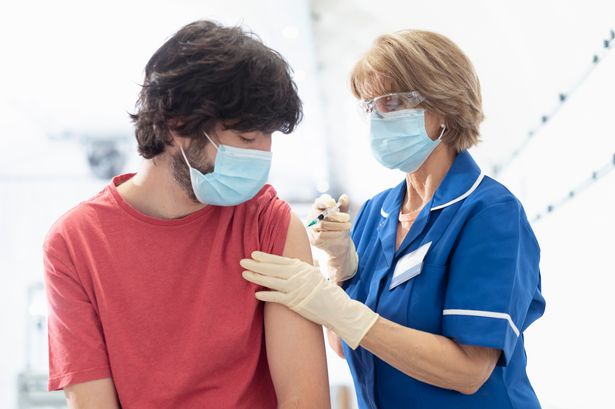
Hundreds of thousands of young people who have so far not been given the vital jab are being encouraged to come forward by the NHS
The NHS is urging young people to come forward for a potentially life-saving vaccine(Image: Getty)
Young people born in specific years are being encouraged to step forward for a “lifesaving” cancer jab. The NHS is reaching out to hundreds of thousands of young adults who have not yet received the vital human papillomavirus (HPV) vaccination.
This immunisation can shield you from cervical and additional types of cancer. Medical practices across England will be sending out vaccination invites to patients born between 2000 and 2009 (currently aged 16 to 25) whose medical records show they didn’t receive their HPV jab during their school years.
The immunisation is typically given each year to pupils in year 8 (aged 12 to 13) to protect them from catching the HPV infection, which causes nearly all cervical cancers and is linked to cancers of the mouth, throat, anus, penis and vagina.
When pupils miss the injection, NHS teams carry out school catch-up sessions and arrange community clinics for home-educated youngsters. Nevertheless, in just the last three years, more than 418,000 pupils finished school without getting the HPV vaccination – and it’s thought there are numerous others now aged 16-25 who weren’t immunised at school.
Consequently, NHS bosses hope to contact as many of these people as possible, supporting objectives to eliminate cervical cancer by 2040 as set out in the recently released 10 Year Health Plan. The NHS aims to boost uptake amongst girls to 90 per cent by 2040, whilst simultaneously increasing the number of women participating in cervical screening programmes.
Throughout the 2023/24 academic year, vaccination rates for 14 to 15 year olds reached 76.7 per cent for girls and 71.2 per cent for boys by year 10. There was also an improvement in uptake amongst year 8 pupils compared to the previous year, with 72.9 per cent of girls and 67.7 per cent of boys receiving the vaccine in 2023/24, up from 71.3 per cent and 65.2 per cent respectively for the first dose in 2022/23.
Before 2023, two doses were required. Dr Amanda Doyle, national director of primary care and community services, said: “This vaccine is hugely important in our fight to eradicate cervical cancer but it isn’t just for girls and women – it’s also vital for boys and men to get vaccinated to protect themselves against cancers of the mouth, throat or genitals, while preventing spreading the HPV infection to sexual partners who could then develop cervical cancer.
“Too many lives are lost to cervical cancer so the hard work of NHS staff across the country in vaccinating and screening as many people as possible will help us to meet our ambition of wiping out this disease. Encouraging progress has been made recently in increasing uptake but we know there is much more to do.
“So if you’re eligible for a HPV vaccination or are the parent of a child who is eligible, but didn’t get the vaccine at school when they had the chance, I would urge you to come forward when your GP contacts you. Only a single dose is required and it could save you or your child’s life.”
Public Health and Prevention Minister Ashley Dalton added: “The HPV vaccine is our most powerful tool in our fight to eliminate cervical cancer by 2040. But we’ve got a long way to go. Thousands of young people are still unvaccinated and vulnerable to this disease – which is so easily prevented.
“If you missed your vaccination at school, it’s not too late. Don’t hesitate to make an appointment with your GP. One jab could save your life.”
The jab is also offered to people up to the age of 45 with weakened immune systems and men who have sex with other men. The latest HPV vaccine, introduced in England in 2021, has shown greater efficacy – it’s expected to reduce cases of women’s cancer by 16 per cent and HPV-related deaths by nine per cent, compared to the previous version.
Studies carried out in England show that the HPV vaccine prevents 90 per cent of cervical cancer cases. Only last month, the NHS launched a new “ping and book” service, delivering digital invitations and reminders for cervical screenings through the NHS App.





